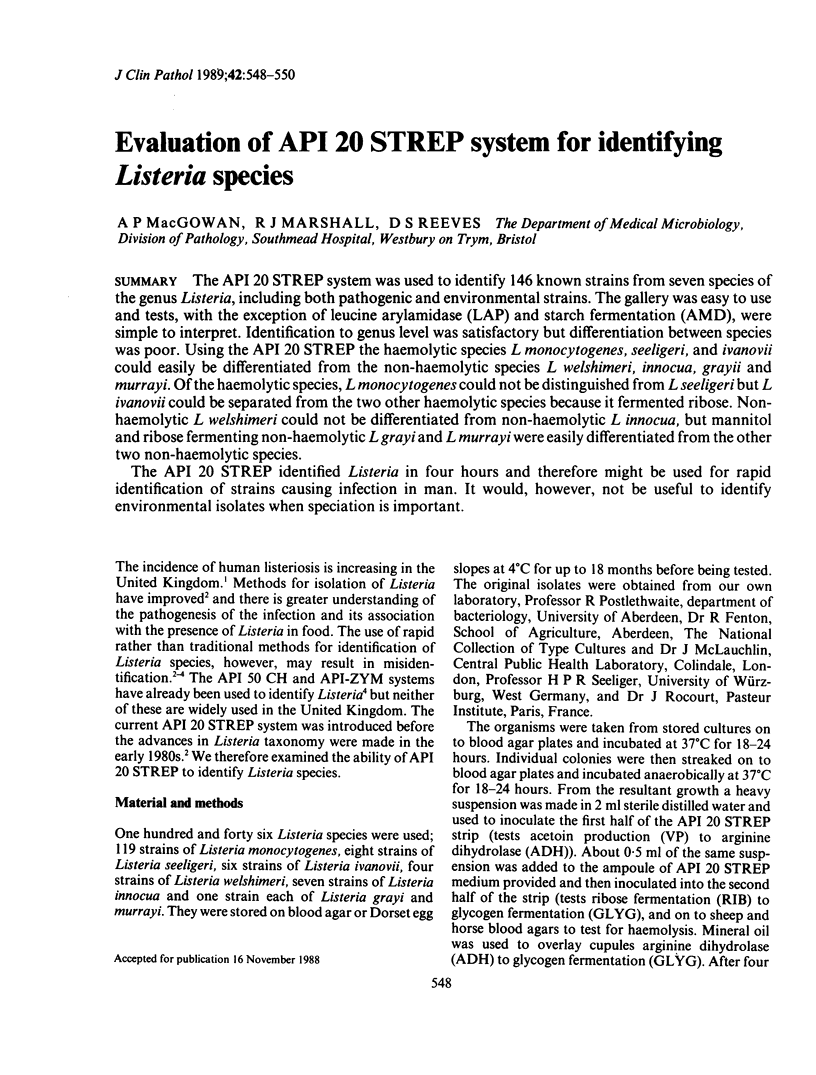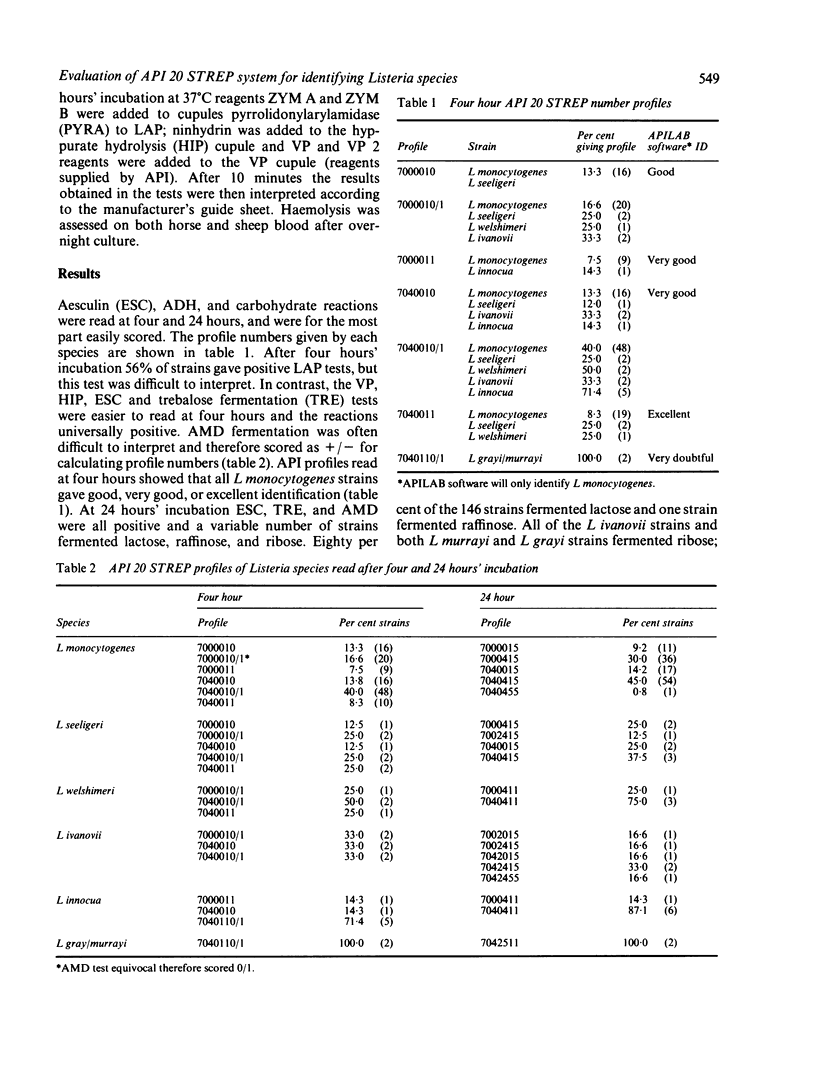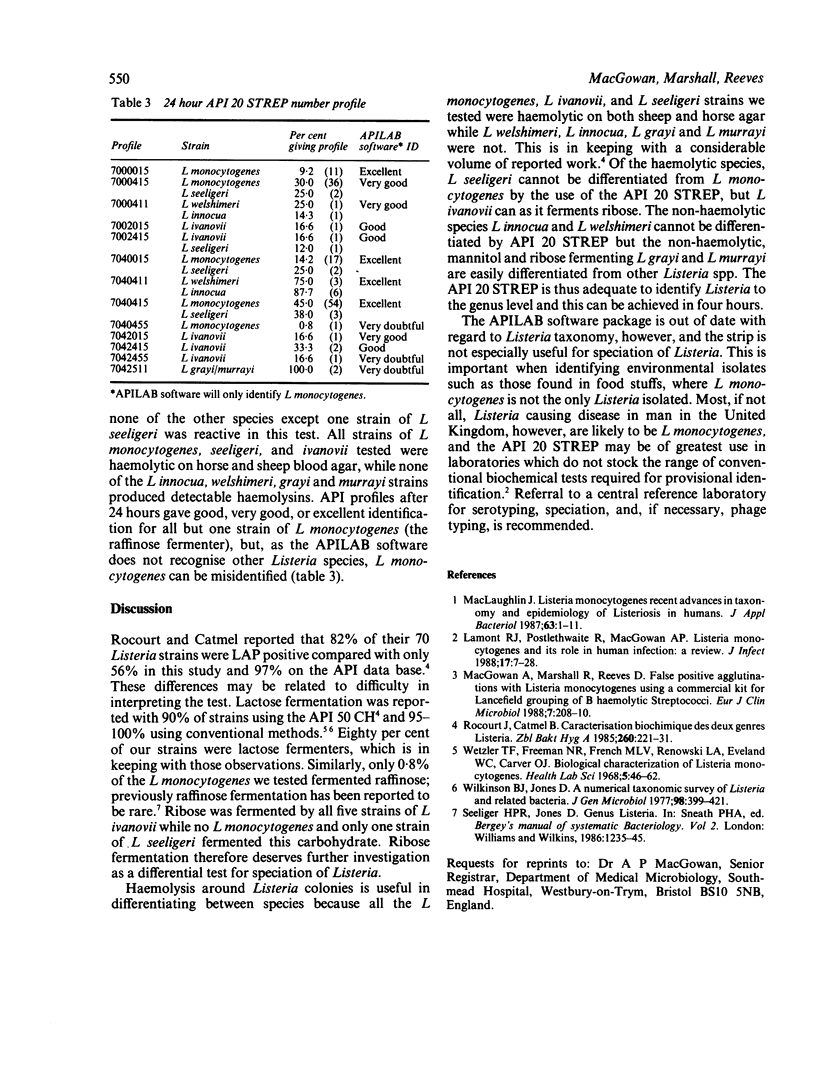Abstract
The API 20 STREP system was used to identify 146 known strains from seven species of the genus Listeria, including both pathogenic and environmental strains. The gallery was easy to use and tests, with the exception of leucine arylamidase (LAP) and starch fermentation (AMD), were simple to interpret. Identification to genus level was satisfactory but differentiation between species was poor. Using the API 20 STREP the haemolytic species L monocytogenes, seeligeri, and ivanovii could easily be differentiated from the non-haemolytic species L welshimeri, innocua, grayii and murrayi. Of the haemolytic species, L monocytogenes could not be distinguished from L seeligeri but L ivanovii could be separated from the two other haemolytic species because it fermented ribose. Non-haemolytic L welshimeri could not be differentiated from non-haemolytic L innocua, but mannitol and ribose fermenting non-haemolytic L grayi and L murrayi were easily differentiated from the other two non-haemolytic species. The API 20 STREP identified Listeria in four hours and therefore might be used for rapid identification of strains causing infection in man. It would, however, not be useful to identify environmental isolates when speciation is important.
Full text
PDF


Selected References
These references are in PubMed. This may not be the complete list of references from this article.
- Lamont R. J., Postlethwaite R., MacGowan A. P. Listeria monocytogenes and its role in human infection. J Infect. 1988 Jul;17(1):7–28. doi: 10.1016/s0163-4453(88)92236-0. [DOI] [PubMed] [Google Scholar]
- MacGowan A., Marshall R., Reeves D. False-positive agglutinations with Listeria monocytogenes using a commercial kit for Lancefield grouping of beta-haemolytic streptococci. Eur J Clin Microbiol Infect Dis. 1988 Apr;7(2):208–210. doi: 10.1007/BF01963089. [DOI] [PubMed] [Google Scholar]
- McLauchlin J. Listeria monocytogenes, recent advances in the taxonomy and epidemiology of listeriosis in humans. J Appl Bacteriol. 1987 Jul;63(1):1–11. doi: 10.1111/j.1365-2672.1987.tb02411.x. [DOI] [PubMed] [Google Scholar]
- Rocourt J., Catimel B. Caractérisation biochimique des espèces du genre Listeria. Zentralbl Bakteriol Mikrobiol Hyg A. 1985 Oct;260(2):221–231. [PubMed] [Google Scholar]
- Wetzler T. F., Freeman N. R., French M. L., Renkowski L. A., Eveland W. C., Carver O. J. Biological characterization of Listeria monocytogenes. Health Lab Sci. 1968 Jan;5(1):46–62. [PubMed] [Google Scholar]
- Wilkinson B. J., Jones D. A numerical taxonomic survey of Listeria and related bacteria. J Gen Microbiol. 1977 Feb;98(2):399–421. doi: 10.1099/00221287-98-2-399. [DOI] [PubMed] [Google Scholar]


